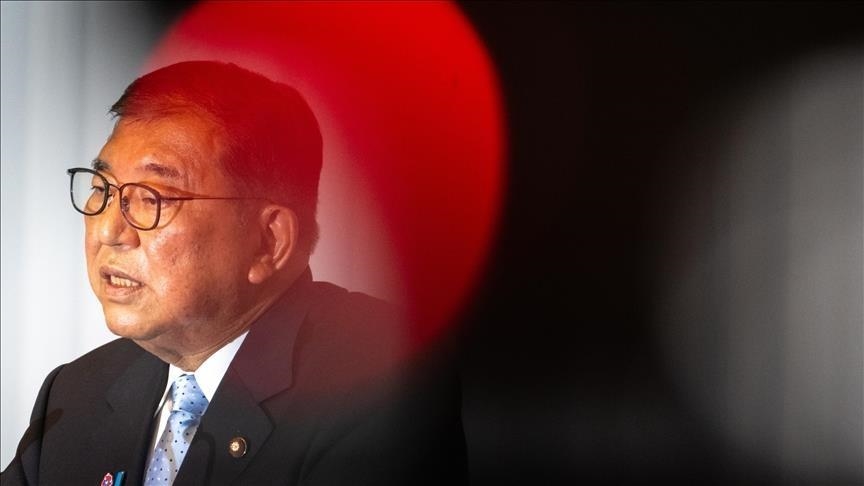Japanese Premier Ishiba steps down after election defeat
Following ruling Liberal Democratic Party’s election defeat in July, Shigeru Ishiba had previously rejected multiple calls from within his party to step down

- Ishiba to remain in post until LDP elects new leader
ISTANBUL
Japanese Prime Minister Shigeru Ishiba on Sunday announced his resignation at a press conference in Tokyo, citing the recent US tariff deal, which imposed 15% levies on Japanese imports, as one of the key reasons for stepping down.
Ishiba’s decision followed his ruling coalition’s defeat in the upper house election in July. Expressing deep regret, he acknowledged his failure to meet expectations as leader of the Liberal Democratic Party (LDP) and accepted responsibility for the party’s setback.
According to Kyodo News, Ishiba explained that his resignation was intended to “avoid a decisive split” within the LDP. He also confirmed that he would not contest the upcoming LDP presidential election, despite securing the leadership last year on his fifth attempt.
Ishiba credited his government for “reaching a milestone” in signing a tariffs deal with the US, which imposes 15% levies on Japanese imports.
Looking ahead, Ishiba urged his successor to strengthen ties with the US and other key allies.
While stepping down as LDP president, Ishiba will remain the prime minister of Japan until the party selects a new leader, a position that, in Japan’s political system, is effectively equivalent to the premiership.
The LDP presidential elections are set for next month, unless the party decides to hold them earlier.
Ishiba’s resignation came after he faced criticism from within the ruling LDP following its defeat in the Upper House election on July 20.
Following his election defeat, Ishiba previously rejected multiple calls from within his party to step down, signaling his intention to stay in office.
Ishiba, who became the prime minister last October, had vowed to address inflation and push for party reforms. The LDP has been mired in a string of political fundraising scandals.
Not long after he assumed office, the LDP and its coalition partner Komeito lost their majority in the Lower House election, and in July, the coalition also failed to secure a majority in the Upper House.
Shigeru Ishiba became the third Japanese prime minister to resign in just five years, following Yoshihide Suga and Fumio Kishida.
Suga, who took office in September 2020 after Shinzo Abe’s resignation, stepped down in October 2021 amid falling approval ratings and criticism over his handling of the COVID-19 pandemic.
Kishida succeeded him in October 2021, promising economic recovery and political reforms, but scandals involving political funding and ties with the Unification Church, along with public dissatisfaction, weakened his position, leading to his resignation in October 2024.
Ishiba assumed the premiership in October 2024, vowing to tackle inflation and reform party politics. Yet his tenure was beset by electoral defeats: the coalition lost its lower house majority soon after he took office, and in July 2025, it failed to secure a majority in the upper house.
Facing mounting pressure, Ishiba announced his resignation on Sept. 7, 2025, after just 11 months in office.
Anadolu Agency website contains only a portion of the news stories offered to subscribers in the AA News Broadcasting System (HAS), and in summarized form. Please contact us for subscription options.







